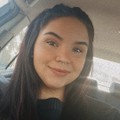Terry A. Greendeer Behavioral Health Wing Dedication Scholarship
Terry A. Greendeer is a Ho-Chunk tribal member who worked for over 27 years for the Nation in positions such as the Director of Behavioral Health.
Ms. Greendeer has been instrumental throughout her career in the development of the Behavioral Health Division, bringing critical services and resources to tribal members and communities. Ms. Greendeer was tireless in her promotion of the Behavioral Health Division, often taking calls, attending community events, or interacting with people outside of work hours.
Ms. Greendeer provided a much-needed link between behavioral health services and Ho-Chunk culture and tradition by implementing procedures and practices, which are still in effect and have influence in the Health Department today.
This scholarship seeks to honor the legacy of Terry A. Greendeer by supporting Native students who share her passion for behavioral health.
Any Native American high school or undergraduate student who is enrolled in a federally recognized tribe and is pursuing social work, behavioral health, or a therapy program may apply for this scholarship.
To apply, tell us how you hope to use your education to help your community.
How do you plan to use your education to help your community?
Winners and Finalists
January 2024









Winning Applications


Explore All Kinds of Scholarships for All Kinds of Students
FAQ
The application deadline is Dec 23, 2023. Winners will be announced on Jan 23, 2024.
Your privacy is a top priority on the Bold.org platform, and you can find our privacy policy in full here. You may opt out of communications from Bold.org at any time, and unless we’ve first notified you and gotten your consent, you’ll never receive communication from any third parties related to personal information you give us.
Award amounts per winner are designated by the donor. Check the award amount for a detailed breakdown.
The winner will be publicly announced on Jan 23, 2024. Prior to the announcement date, we may contact finalists with additional questions about their application. We will work with donors to review all applications according to the scholarship criteria. Winners will be chosen based on the merit of their application.
Award checks will be sent to the financial aid office of the winner's academic institution or future academic institution in their name to be applied to their tuition, and in the name of their institution (depending on the school's requirements). If the award is for a qualified educational non-tuition expense, we will work with the winner directly to distribute the award and make sure it goes towards qualified expenses.
Before we award the scholarship, the winner will be required to confirm their academic enrollment status. Depending on the circumstances, verification of Student ID and/or their most recent transcript will be required.
If you have any questions about this scholarship or the Bold.org platform, just email contact@bold.org and we’ll get back to you as quickly as we can.
Yes. The terms and conditions for this scholarship can be found here.